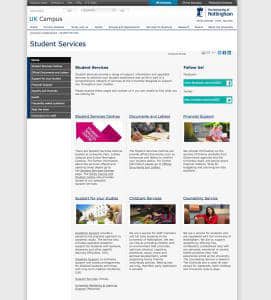School v university life
I must admit to being extremely irritated by a recent report in The Telegraph of a speech by Richard Harman, Head of Uppingham School, in which he warns that “both independent and state school pupils are under “more pressure than ever before”, with worries about jobs, housing and increased debt contributing to this anxiety.”
I don’t disagree with that proposition which is a fair assessment, students are indeed under a lot of pressure. However, what I do take issue with is his suggestion that support can “dry up” when pupils reach university:
“Leaving school, leaving home and creating a new life at 18 is bound to be a time of acute anxiety,” he will add. “But at the point of greatest need, support can dry up.
“Considerable work will be needed to ensure all students in the UK are resilient at each stage of their development … and that they are equipped with the skills as well as knowledge to make them highly employable.”
Mr Harman will highlight the results of a previously unpublished HMC survey from 2011, which shows that 75 per cent of state and independent school pupils rated their school’s pastoral support as either ‘very’ or ‘quite’ good.
This is in comparison to 53 per cent of those in higher education.
In fact, by the time they reach the final year of university, only 18 per cent of students consider support to have been ‘very good’, according to the study.
Highlighting some examples of best practice, Mr Harman will say that some universities are helping to address the issue.

University is very different to the school environment in many ways. Students are expected to operate much more as independent adults and to take more responsibility for accessing services as they need to.
Universities do have to ensure their services are effectively signposted and that students are properly informed about the support they can take advantage of. But in a mass system the kind of intensive support available in private school is neither appropriate nor realistic.
Nevertheless the support available is generally, in my experience, very good with a wide range of services available. Looking at the University of Nottingham for example, which is not untypical, there is a lot of support there for students. Student services includes counselling, academic support, welfare, accommodation, financial support, childcare, faith support to name but a few. All of this is in addition to local pastoral support and the support available within halls of residence.
This is clearly very different from the more intensive, focused and hands on support in a small private boarding school environment. It is not clear what the unpublished HMC survey cited by Mr Harman actually addresses but the survey data of Nottingham students’ views of student support services is much more positive.
Student support at university is different. It really is not helpful to suggest it is weaker or that students will suffer in moving from school to higher education.














Having survived the mass education system at a very large German university in the 80s, I was astonished by the level of support at UK universities. I was used to no support but full responsibility, and found the UK system quite stifling and school-like in its treatment of students. With the creation of the fee-paying student/customer and the stakeholder parent, expectations of support and success at university have inevitably increased. Whilst I believe there has to be an appropriate level of support to enable and empower students to fulfil their academic and personal potential at uni (I barely survived my… Read more »
Very interesting perspective Doris, thank you. There is a balance to be struck here between sink or swim and independence but with the right level of support where needed.